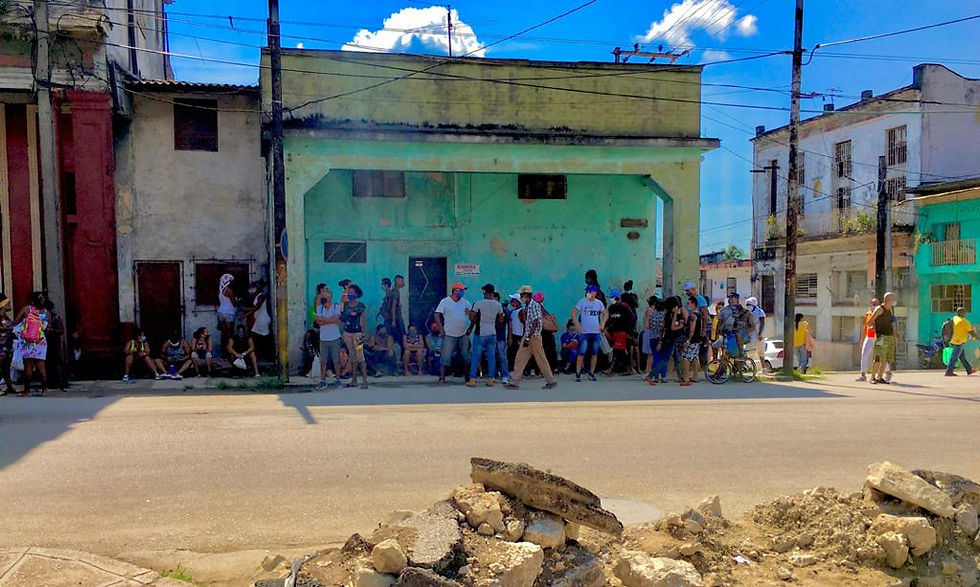CUBA NEWS WEEK ENDING April 26, 2020
- Cuba Travel
- May 3, 2020
- 2 min read
The shortages throughout Cuba are becoming severe, with food being the number one issue. Meat of any kind is difficult to obtain, and the Cuban government is relying on the rations card for distribution of small quantities of food. One program for elderly residents this week gave them about two pounds of fruit, a pound of rice, four eggs, and corn meal, but it’s all supposed to last for the month. The lines at food markets are hour’s long and appear to be a great place to spread COVID-19. Even fruits and vegetables are in short supply throughout Havana.
Hygiene products have also become scarce, everything from laundry detergent and bleach to deodorant and shampoo require hours of effort to find a store that has one in stock and then waiting in line for several hours. Most stores will have a large quantity of one product, so you have to repeat this process almost every day. Bus stops that are usually packed with waiting passengers are now empty, and there are no children on the streets.
The spread of COVID-19 appears to be different in Cuba than in all other countries. During the first couple of weeks of the pandemic the number of confirmed cases would increase by five every day, for a few days that number increased until it reached fifty, and for the past couple of weeks the government announces approximately fifty new cases every day.
Gas stations are the one bright spot and the usual hassles of buying gas are gone. At the beginning of March, it took me an hour to fill my fuel tank around midnight, and I can now pull up to the pump with no waiting.
By Frank Gonzalez




Comments